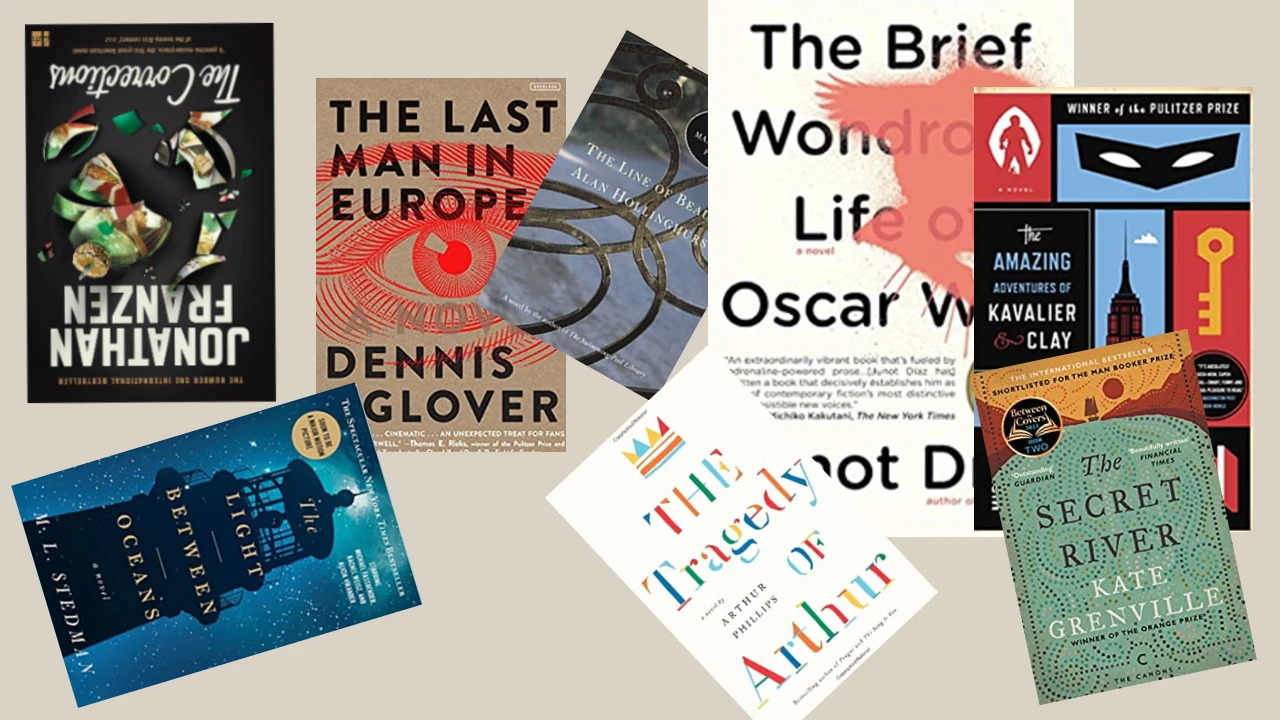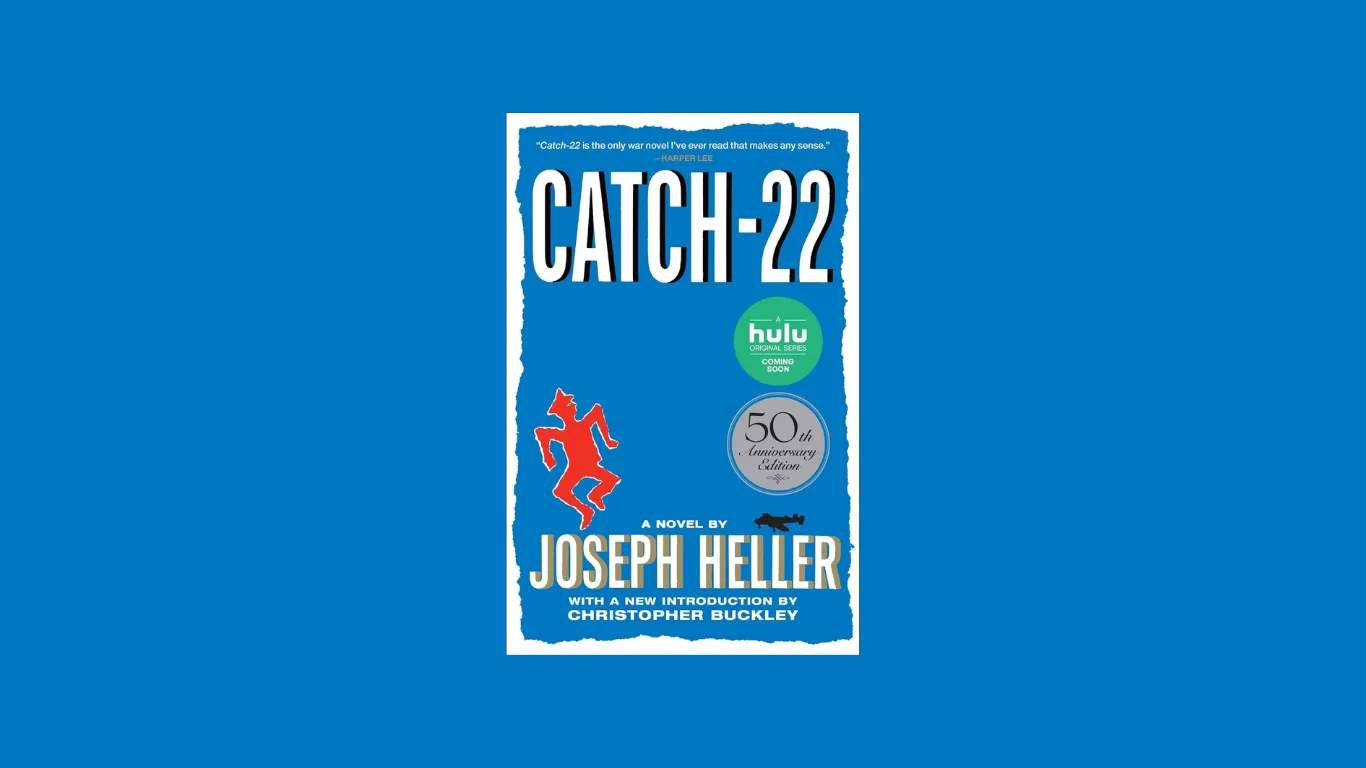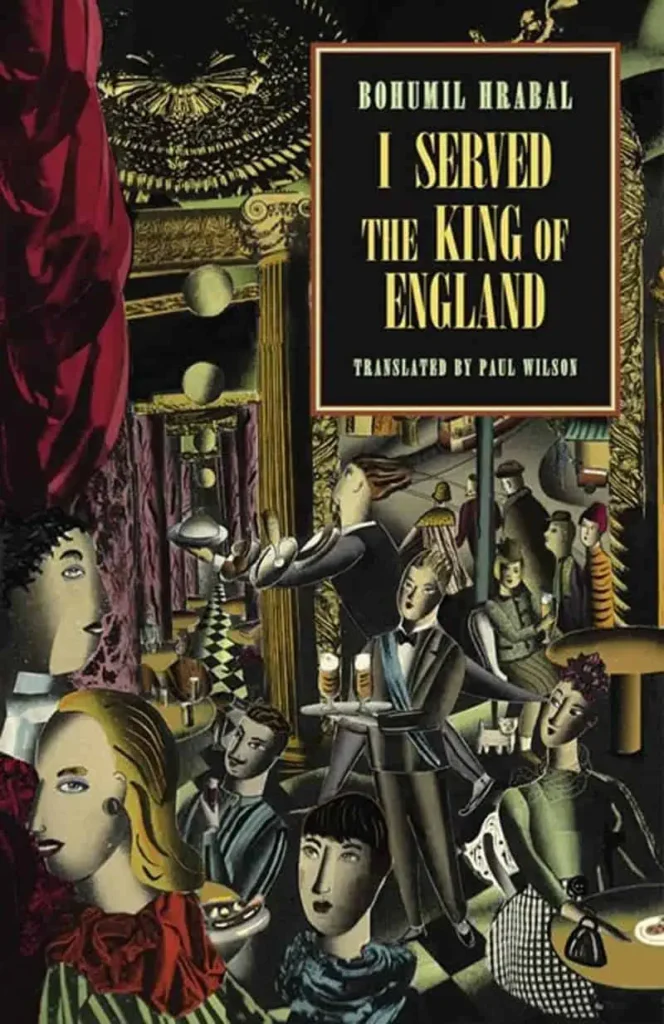
Newsletter Subscribe
Enter your email address below and subscribe to our newsletter

Enter your email address below and subscribe to our newsletter

This content may contain affiliate links. When you buy through these links, we may earn an affiliate commission.

Catch-22 is a satirical novel written by Joseph Heller, first published in 1961. The story is set during World War II and follows the experiences of a U.S. Army Air Forces B-25 bombardier named Captain John Yossarian.
The title “Catch-22” refers to a bureaucratic paradox that traps the novel’s characters. According to the rule, a pilot is considered insane if he willingly continues to fly dangerous combat missions, but if he requests to be relieved of duty on the grounds of insanity, his request is denied because it shows concern for his safety and, therefore, sanity. This paradoxical situation captures the absurdity and illogical nature of war and bureaucracy.
The novel is known for its dark humor, non-linear narrative, and portrayal of the absurdities of war, bureaucracy, and the military. It explores themes such as the dehumanizing effects of war, the abuse of power, and the struggle of individuals against impersonal and arbitrary institutions. “Catch-22” has become a classic of American literature and is often cited as one of the greatest novels of the 20th century.
by Jaroslav Hašek

This satirical novel was originally published in serialized form between 1921 and 1923. It is considered one of the greatest works of Czech literature and a classic example of anti-war literature.
The story is set during World War I and follows the adventures of Josef Švejk, a seemingly bumbling and naive soldier in the Austro-Hungarian Army. Švejk is a good-natured and simple-minded man who manages to navigate the absurdities and contradictions of the military bureaucracy with a combination of foolishness and subversive wit.
The novel is known for its humor and satire, as Švejk’s seemingly inept behavior often serves as a commentary on the senselessness and futility of war. Through Švejk’s experiences, the novel explores the incompetence and corruption within the military and political establishments. Švejk’s antics and interactions with various characters provide a humorous and critical perspective on the war and the society of the time.
While The Good Soldier Švejk is primarily a satirical anti-war novel, it also delves into broader social and political themes. The character of Švejk has become an iconic figure in Czech literature and has been adapted into various forms of media over the years.
Hašek’s Good Soldier Švejk is often compared to Vladimir Voinovich’s Private Ivan Chonkin because of these thematic and stylistic similarities, making them companion pieces in the tradition of satirical war literature.
by Kurt Vonnegut

Often considered one of the greatest anti-war novels and a classic of modern American literature, Slaughterhouse-Five blends elements of science fiction, satire, and autobiography.
The story follows the life of Billy Pilgrim, an optometrist, and his experiences during and after World War II. Billy becomes “unstuck in time,” meaning he experiences moments from his life in a nonlinear fashion, jumping back and forth between different periods. This narrative structure allows Vonnegut to explore the randomness and absurdity of war and life itself.
The central event in the novel is the firebombing of Dresden, Germany, during World War II. Billy Pilgrim is captured by the Germans and witnesses the destruction of the city, an event that has a profound impact on him. The novel challenges traditional notions of cause and effect, free will, and the concept of time.
Vonnegut incorporates elements of his own experiences as a prisoner of war during the Dresden bombing into the narrative, adding a personal dimension to the story. “Slaughterhouse-Five” is known for its unconventional structure, dark humor, and its anti-war and anti-establishment themes. It has become a classic work that continues to be studied and appreciated for its unique approach to storytelling and its commentary on the human condition.
by Thomas Pynchon

“Gravity’s Rainbow” is a novel written by American author Thomas Pynchon. Published in 1973, it is a complex and highly intricate work that defies easy summarization. The novel is set during the closing months of World War II and follows a vast and interconnected cast of characters as they navigate a world filled with conspiracy, paranoia, and scientific intrigue.
At its core, “Gravity’s Rainbow” explores the impact of technology and the ways in which individuals and societies grapple with the forces of power and control. The narrative weaves together various storylines, incorporating elements of history, science fiction, and the occult. Themes such as Pavlovian conditioning, rocket science, and the nature of paranoia are central to the novel.
One of the key plot points involves the development and deployment of the V-2 rocket by the Germans during World War II. The novel delves into the psychological and social implications of this advanced technology, as well as its connection to various mysterious and conspiratorial organizations.
“Gravity’s Rainbow” is known for its challenging and experimental narrative style, rich symbolism, and dense allusions to a wide range of historical, scientific, and cultural references. The novel has been praised for its intellectual depth and complexity but has also been criticized for its difficulty, making it a divisive and influential work in modern literature.
by Vladimir Voinovich

This satirical novel by Russian dissident from Soviet times, Vladimir Voinovich, is a set during World War II and depicts the absurdities of Soviet life and bureaucracy. The story follows Ivan Chonkin, a simple and unremarkable soldier, who is mistakenly left behind in a rural village to guard a wrecked airplane. Through Chonkin’s interactions with the villagers and authorities, Voinovich bravely critiques the inefficiency, paranoia, and corruption that had engulfed the Soviet system.
Voinovich uses dark humor and absurdity to highlight the contradictions and absurdities of the Soviet regime, as well as the folly of blind obedience to authority exercised by millions and millions of Soviet citizens. Chonkin’s naivety and straightforwardness serve as a stark contrast to the convoluted and often irrational behavior of those around him, making him a relatable and endearing character.
Simlar to The Good Soldier Švejk, Private Ivan Chonkin has become an iconic almost cult book in Eastern European cultures for their unique approach to the war novel, and crazey humor with deep social and political criticism. And now, many years after the fall of the Berlin Wall and the dissolution of the Soviet Union, The Life and Extraordinary Adventures of Private Ivan Chonkin remains a significant work of satirical fiction, offering a biting and often hilarious critique of the Soviet era. Read the book and do your part to make sure this era never comes back!
by Bohumil Hrabal

Hrabal’s I Served the King of England is a darkly comedic novel that followsDitie, a young, ambitious waiter in 1930s Czechoslovakia. Through his eyes, we see his rise from a humble busboy to a wealthy hotel owner, driven by his obsession with wealth, status, and pleasing the elite. His adventures, often absurd and ironic, unfold against the backdrop of Czechoslovakia’s turbulent history, including the Nazi occupation and the rise of communism. Ditie’s naive charm and knack for landing in surreal situations, like serving exotic dishes to eccentric aristocrats or witnessing wartime absurdities, highlight Hrabal’s satirical take on human vanity, power, and survival.
Ultimately, and as I think about the world Hrabal created and compare it to Catch-22, I see that both novels use dark comedy to critique war and bureaucracy. Ditie’s opportunistic schemes mirror Yossarian’s desperate ploys to survive World War II’s absurd military system. Both protagonists, outsiders in chaotic worlds, expose moral ambiguities and human folly through ironic situations; Ditie’s alliances with Nazis for gain echo Yossarian’s complicity in a profit driven war machine, blending satire and a reflection on survival in tumultuous times. Ultimately, both of their pursuits leads to personal and moral reflection as they navigates a changing world.